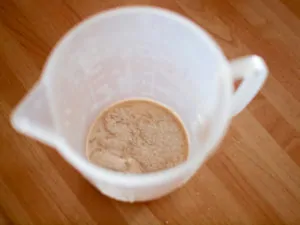All About Wine Yeast

All About Yeast
Without yeast there would be no wine. Yeast are responsible for turning sugar to alcohol and they do this with great efficiency, but what is yeast? Basically they are classed as a fungus and are a single celled fungi that love sugary solutions whether that be from flour used for making bread, barley for making beer or fruit for making wine.
The purpose of yeast isn’t to make alcohol (although that’s the purpose brewers use it for), this is just a byproduct of them growing and trying to reproduce as quickly as possible. Yeast consume sugar by creating enzymes that help them digest it and along with producing alcohol they also produce carbon dioxide in equal measure (this carbon dioxide is what gives bread its holey texture and beer its fizz).
When we make a wine we add sugar in a certain quantity and the yeast will consume as much of that sugar as they can in order to grow up to a certain point. Yeast can tolerate alcohol up to a certain point but when the levels of alcohol present get too high it poisons them and they begin dying. This is why there is a limit of around 14-16% to the alcoholic strength of wines.
Yeast In Wine Making
So as a wine maker we create a sweet solution with water, sugar and a flavouring like fruit which also adds a small amount of sugar. To this we add yeast which removes as much of the sugar that it can. If there is too much sugar for it to consume it leaves a residual amount which will result in a sweet wine or a dessert wine, if it can consume all the sugar the result is a dry wine.
The yeast also creates some of its own flavour compounds as it goes about fermenting. Some of these flavours are good and some are not so desirable. The good thing about yeast however is they will clean up these undesirable flavours in time. This is why it’s important to allow the yeast an adequate amount of time to ferment your wine and then fall out of suspension.
What About Bakers Yeast
I would strongly urge you to steer clear of bread yeast. If you want to make good wines then one made with a dedicated wine yeast will always be better than one made with bakers yeast. You’ve got to think of the yeast as an ingredient, this means chooseing a strain of yeast for the type of wine you are making whether that be a red wine like a Burgundy or a white like a Chablis. There are hundreds of wine yeasts to choose from so go for one of those and leave the bakers yeast for making bread.
